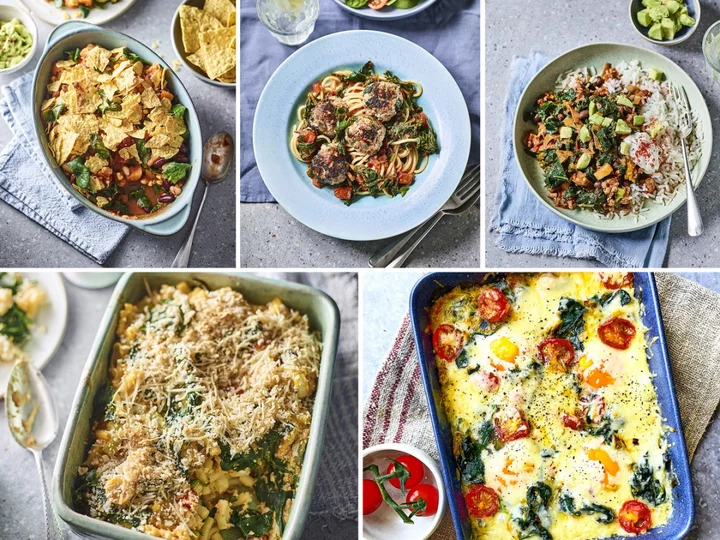
The devastating mental health impact of soaring mortgage costs
Almost a third of people in England and Wales said their mental health has been affected by soaring mortgage costs in the past year, according to new research. For people with existing mental health problems, nearly four in 10 said the rising costs had worsened their mental health. Mind, the UK’s biggest mental health charity, also said it had seen a 55 per cent increase in the number of people contacting its Infoline over the last 18 months about financial difficulties, including welfare, unemployment and personal debt. The charity’s survey of 3,015 respondents across England and Wales in March and April came before Thursday’s news that the Bank of England had raised interest rates to 5.25 per cent from 5 per cent. The hike, which is yet another bid to get inflation under control, will put more pressure on mortgage holders. Mind’s survey – carried out by Censuswide – suggested that 29 per cent of people had been affected by hearing about or experiencing increasing mortgage costs over the last year. Ten per cent said that it had affected their mental health a lot, the charity added. For people with existing mental health problems, some 36% said the increasing mortgage costs had made their mental health worse. The charity said younger people were particularly affected, with almost half (48%) of those aged between 16 and 24 saying that the mortgage situation had impacted on their mental health. Vicki Nash, Mind’s associate director of external affairs, said financial difficulties and mental health problems “often form a vicious cycle”. She said: “As we continue to grapple with the rising cost of living, news of yet another possible increase in mortgage rates will be difficult for many families to bear. “Money problems and mental health often form a vicious cycle, and when we’re struggling to deal with one, the other can become much harder to manage, particularly when it threatens to impact our housing situation. “We know some people are becoming so unwell that they need hospital treatment for their mental health. “When this happens the care they receive when they leave hospital is critical so we are calling for the introduction of comprehensive welfare checks, including of people’s financial situation. “These figures show this is a mental health emergency that everyone is going to need help to deal with. We know we can’t fix the cost-of-living crisis but support for your mental health is out there, and we are here for you. “This includes through Mind’s Infoline, online community, Side by Side and the useful information on our website that will be available throughout this difficult period.” Mind has a confidential information and support line which can be called on 0300 123 3393 between 9am and 6pm from Monday to Friday, or people can visit mind.org.uk. Read More ‘Unsackable’ Jeremy Hunt to remain chancellor as Rishi Sunak eyes ‘election-ready’ Cabinet reshuffle Lizzo: All the allegations made by former dancers – from sexual harassment to body shaming The Bank hikes interest rates again – but the end of the pain could finally be in sight Charity boss speaks out over ‘traumatic’ encounter with royal aide Ukraine war’s heaviest fight rages in east - follow live
2023-08-04 17:48

Soaring mortgage costs ‘affecting mental health of almost a third of people’
Almost a third of people in England and Wales said their mental health has been affected by soaring mortgage costs in the past year, according to new research. For people with existing mental health problems, nearly four in 10 said the rising costs had worsened their mental health. Mind, the UK’s biggest mental health charity, also said it had seen a 55% increase in the number of people contacting its Infoline over the last 18 months about financial difficulties, including welfare, unemployment and personal debt. The charity’s survey of 3,015 respondents across England and Wales in March and April came before Thursday’s news that the Bank of England had raised interest rates to 5.25% from 5%. The hike, which is yet another bid to get inflation under control, will put more pressure on mortgage holders. Mind’s survey – carried out by Censuswide – suggested that 29% of people had been affected by hearing about or experiencing increasing mortgage costs over the last year. Ten per cent said that it had affected their mental health a lot, the charity added. For people with existing mental health problems, some 36% said the increasing mortgage costs had made their mental health worse. Money problems and mental health often form a vicious cycle, and when we’re struggling to deal with one, the other can become much harder to manage, particularly when it threatens to impact our housing situation Vicki Nash, Mind The charity said younger people were particularly affected, with almost half (48%) of those aged between 16 and 24 saying that the mortgage situation had impacted on their mental health. Vicki Nash, Mind’s associate director of external affairs, said financial difficulties and mental health problems “often form a vicious cycle”. She said: “As we continue to grapple with the rising cost of living, news of yet another possible increase in mortgage rates will be difficult for many families to bear. “Money problems and mental health often form a vicious cycle, and when we’re struggling to deal with one, the other can become much harder to manage, particularly when it threatens to impact our housing situation. “We know some people are becoming so unwell that they need hospital treatment for their mental health. “When this happens the care they receive when they leave hospital is critical so we are calling for the introduction of comprehensive welfare checks, including of people’s financial situation. “These figures show this is a mental health emergency that everyone is going to need help to deal with. We know we can’t fix the cost-of-living crisis but support for your mental health is out there, and we are here for you. “This includes through Mind’s Infoline, online community, Side by Side and the useful information on our website that will be available throughout this difficult period.” Mind has a confidential information and support line which can be called on 0300 123 3393 between 9am and 6pm from Monday to Friday, or people can visit mind.org.uk. Read More Charity boss speaks out over ‘traumatic’ encounter with royal aide Ukraine war’s heaviest fight rages in east - follow live Consuming foods with added sugars may increase risk of kidney stones – study Why TikTok is going wild for lip oil 5 late summer blooms to plant now
2023-08-04 17:27

Consuming foods with added sugars may increase risk of kidney stones – study
Consuming foods with added sugars – such as soft drinks, ice-cream and cakes – may increase the risk of developing kidney stones, according to scientists. Researchers have found that those in the US with the highest intake of added sugars had nearly 40% greater odds of developing kidney stones. They said this association was more prevalent among Asians as well as Native Americans. But the researchers pointed out that their study, published in the journal Frontiers, does not show how exactly added sugars increases the risk of kidney stones. Lead author Dr Shan Yin, a researcher at the Affiliated Hospital of North Sichuan Medical College, Nanchong, China, said: “Ours is the first study to report an association between added sugar consumption and kidney stones. “It suggests that limiting added sugar intake may help to prevent the formation of kidney stones.” One in 11 people will get stone symptoms during their lifetime, according to The British Association of Urological Surgeons. Ours is the first study to report an association between added sugar consumption and kidney stones. Dr Shan Yin Known risk factors include obesity, inflammatory bowel disease, diabetes, and being an adult male. For the study, the Dr Yin and colleagues analysed data from more than 28,000 people who were part of the US National Health and Nutrition Examination Survey (NHANES) survey. Each person’s daily intake of added sugars was estimated from their self reported food and drink consumption. They also received a healthy eating index score (HEI-2015), based on the food they ate, whether it was beneficial foods such as fruits, vegetables, and whole grains, or less healthy options such as refined grains or saturated fat. The researchers adjusted for factors such as gender, age, race or ethnicity, income, body mass index, HEI-2015 score, smoking status, and whether the people taking part in the study had a history of diabetes. The researchers said people who received more than 25% of their total energy from added sugars had a 88% greater odds than those who had less than 5% of their total energy from added sugars. Results also showed people below poverty levels had greater odds of developing kidney stones when exposed to more added sugars than those at or slightly above poverty levels. Dr Yin said: “Further studies are needed to explore the association between added sugar and various diseases or pathological conditions in detail. “For example, what types of kidney stones are most associated with added sugar intake? “How much should we reduce our consumption of added sugars to lower the risk of kidney stone formation? “Nevertheless, our findings already offer valuable insights for decision-makers.” Read More Charity boss speaks out over ‘traumatic’ encounter with royal aide Ukraine war’s heaviest fight rages in east - follow live Why TikTok is going wild for lip oil 5 late summer blooms to plant now Why have the birds disappeared from my garden?
2023-08-04 15:57

Man with 'projected age of 200' reveals he would drink alcohol for breakfast
A man who has spent 'millions' trying to biologically lower his age in order to live longer reveals he drinks alcohol every morning for breakfast. Bryan Johnson, 45, has the 'biological age' of an 18-year-old, and is projected to live to be 200. He made the shocking confession on Steven Bartlett's Diary Of A CEO podcast, where he told of how his final meal of the day is done by 11am. Johnson says he loves wine, and would have 3oz with his breakfast before it became too expensive. Sign up to our free Indy100 weekly newsletter
2023-08-03 21:25

High-Tech Dorm Room Essentials Every Student Needs
Home sweet home for college students is a shared 6-by-8 space for nine months out
2023-08-03 20:50

Holiday travel boom here to stay, says Lufthansa
By Maria Sheahan BERLIN The boom in holiday travel shows no signs of ending, German airline group Lufthansa
2023-08-03 18:56

3 great abs exercises that aren’t crunches
Most of us have been guilty of doing a huge number of crunches in the hope of making our tummies trimmer. Then, two weeks later, we’re disappointed nothing seems to have changed. “Think abs and we tend to think ‘six-pack’ (visible or not) – the long muscle that extends along the front of the abdomen,” says PT and fitness expert, Laura Williams. “This often makes crunches our go-to move when it comes to the tum. But the abdominal muscles also include your waist muscles – your obliques – and one of your main core muscles, the transversus abdominis.” Targeting these areas, she says, with a variety of exercises, will help to strengthen all the important muscles of the abdominal area, as well as those in the upper back and hips, helping with everything from a stronger core to preventing injury. 1. Heel Tap Why: Works core muscles. How: From a lying position with legs bent above hips, lower one heel towards the floor, then lift back up. Change sides. Do a total of 12 lowers. Tip: Try to keep your back flat on the mat. 2. Seated Sprinter Why: Works the waist, hip and thigh muscles. How: From a seated position, with both legs off the floor, extend one leg out in front of you and bring the opposite arm towards your inside knee. Repeat on the other side. Do a total of 12 twists. Tip: Keep your torso lifted throughout. Place feet on the floor to make this easier if needed. 3. Pulsing Side Plank Why: Works the shoulder, hip, thigh and waist muscles. How: Lying on your side, raise your body into the air with your weight on the side of your foot and your bottom arm. Rest your top arm on your bottom shoulder and lower your body a short way to the ground before pushing back up. Do 15 pulses. Change sides. Tip: Reduce your range of movement if you fatigue. Read More Charity boss speaks out over ‘traumatic’ encounter with royal aide Ukraine war’s heaviest fight rages in east - follow live Twiggy: I did not plan to get into modelling ‘Women short-changed as 65% of weekly working hours ignored in official data’ How to wear the casual tailoring look in summer
2023-08-03 16:26

School holidays sorted: Fuss-free and nutritious family dinner recipes
We all know how important it is for the whole family to follow a nutritious diet and enjoy tasty meals together, but with the chaos that the school summer holidays bring, that can be no mean feat. We are here to help with five simple yet flavoursome recipes from Discover Great Veg to keep everyone at the dinner table happy and well nourished. With a range of cuisines to choose from and packed full of delicious vegetables, the whole family can enjoy sharing healthy meals together. For a fun family mealtime idea, the vegan Mexican bean, spinach and nacho crumble will have everyone coming back for seconds! One portion contains three of your five a day and costs just £1.25 to make. Containing vitamins K and A, low in fat, and a source of fibre, folate and protein, it can also be cooked in your slow cooker. Introduce the kids to wonderfully leafy green kale in the family-friendlypork and kale meatballs with spaghetti. If you don’t have pork, try using chicken, turkey or beef to make the meatballs. And for a healthy twist on the classic chilli, try the chicken and kale chilli. Flavoursome and high in protein, yet low in fat it is also a source of vitamin C and high in vitamin K. Everyone loves a pasta bake! Suitable for vegetarians, the spinach pasta bake is packed full of vegetables and contains 3 of your 5 a day. Or for another injection of spinach, try the cheesy baked eggs, which makes a stunning centrepiece and is also suitable for vegetarians. Both dishes are high in vitamin K and A, and a source of folate. Mexican bean and spinach nacho crumble Cost: £1.25 per portion Prep time: 10 minutes | Cook time: 25 minutes Serves: 4 Ingredients: 1 tbsp vegetable oil 1 red onion, chopped 1 tsp ground cumin 1 tsp chilli powder 400g can red kidney beans, drained and rinsed 400g can cannellini beans, drained and rinsed 1 corn on the cob, kernels removed 250g frozen diced butternut squash 400g can chopped tomatoes 2 tbsp tomato ketchup 260g bag spinach 100g tortilla chips, roughly crushed Method: Heat the oil in a large saucepan and fry the onion for 3-4 minutes, add the spices and then add the beans, corn kernels and squash and fry for 1-2 minutes. Stir in the tomatoes, with half a can of water and the ketchup. Bring to the boil, cover and simmer for 15 minutes, stirring occasionally. Add the spinach and stir until wilted. Transfer to a heatproof serving dish, sprinkle with crushed tortilla chips and grill for 1-2 minutes. Cooks tip: To cook in a slow cooker, prepare as above, stir in the tomatoes, water and ketchup and bring to the boil. Transfer to the slow cooker and cook on LOW for 4 hours. Stir in the spinach and finish as above. Pork and kale meatballs with tomato spaghetti Cost: £1.45 per portion Prep time: 20 minutes | Cook time: 30 minutes Serves: 4 Ingredients: 250g bag kale 2 tbsp oil 1 red onion, finely chopped 500g minced pork 1 tsp Italian seasoning 3 tbsp sun dried tomato pesto 250g spaghetti 400g can chopped tomatoes 2 tsp balsamic vinegar Method: Cook the kale in boiling water for 3-4 minutes, drain well. Squeeze out the excess moisture from half the kale and finely chop. Heat 1 tbsp oil in a frying pan and fry the onion for 4-5 minutes until golden, transfer half to a large bowl and mix in the pork, chopped kale, Italian seasoning and 1 tbsp pesto, season and mix well. Divide into 16 balls. Set aside the remaining onions. Heat the remaining oi in the same frying pan and fry the meatballs for 10-15 minutes until cooked through Remove and set aside. Meanwhile, cook the spaghetti according to pack instructions, drain, reserving a little of the cooking water. Return the reserved onions to the same frying pan, add the chopped tomatoes, vinegar, remaining pesto and kale and bring to the boil, stir in the spaghetti and a little of the cooking water and stir to evenly coat. Season. Serve the tomato spaghetti topped with the meatballs. Cooks tip: Try using minced turkey, chicken, lamb or beef instead of the pork. Chicken and kale chilli Cost: £1.95 per portion Prep time: 15 minutes | Cook time: 30 minutes Serves: 4 Ingredients: 1 tbsp oil 1 leek, sliced 1 clove garlic, chopped 2 tsp chilli powder 1 tsp ground cumin 500g minced chicken or turkey 2 tbsp tomato puree 400g can chopped tomatoes 400g can black beans, drained and rinsed 250g bag kale 1 ripe avocado, diced Soured cream and cooked rice to serve Method: Heat the oil in a large saucepan and fry the leek and garlic for 1 minute. Add the spices and then the minced chicken and fry until browned. Add the tomato puree, chopped tomatoes along with ½ can of water and the beans. Cover and simmer for 20 minutes. Meanwhile, cook the kale in boiling water for 3-4 minutes, drain well then stir into the chilli. Season to taste. Serve topped with avocado, a spoonful of soured cream on a bed of rice. Cooks tip: Try minced pork instead and serve on top of jacket potatoes. Spinach and pasta bake Cost: £1.44 per portion Prep time: 20 minutes | Cook time: 20 minutes Serves: 4 Ingredients: 75g cashews 1 carrot, sliced 1 sweet potato, diced 300ml almond milk 50g vegan hard cheese, grated 300g macaroni pasta 260g bag spinach 1 tbsp vegetable oil 1 leek, sliced 100g cherry tomatoes, halved 50g homemade breadcrumbs Method: Preheat the oven to 200C, gas mark 6. Cook the cashews, carrot, and sweet potato in boiling water for 10 minutes or until tender. Drain and puree in a food processor with the almond milk until smooth, season and add half the cheese alternative. Cook the macaroni in boiling salted water for 10 minutes, add the spinach until wilted, drain well and return to the pan. Heat the oil in a frying pan and fry the leek and tomatoes for 3-4 minutes until softened. Mix the sauce and leek mixture into the pasta and stir to combine. Transfer to an ovenproof serving dish, sprinkle with remaining cheese alternative and breadcrumbs and bake for 20 minutes until golden. Cooks tip: Try new potatoes or butternut squash to replace the sweet potatoes. Cheesy baked eggs Cost: £1.25 per portion Cook time: 25 minutes Serves: 4 Ingredients: 1 tbsp olive oil 2 leeks, trimmed and sliced 2 cloves garlic sliced 10 cherry tomatoes sliced 200g spinach 4 large eggs 100g mature cheddar grated Seasoning to taste Method: Preheat your oven to 180C. Add the oil to a medium pan on a low to medium heat then add in the leeks. Fry for 8-10 minutes until soft and caramelising. Now add the garlic and fry for a further minute. Add the tomatoes and spinach to the pan and cook down for 1-2 minutes. Turn off the heat and season well. Transfer the mix to a medium high sided baking dish. Crack the eggs on top of the veg mix. Sprinkle the grated cheese over the top and pop in the oven for 8-10 minutes. Take out of the oven and serve with some crusty bread For more recipes and inspiration, visit discovergreatveg.co.uk Read More A week’s worth of summery recipes (even when the weather is dire) The dish that defines me: Frank Yeung’s prawn wontons Discovering Sierra Leonean flavours in South London How to make cassava chips How to make a traditional Sierra Leonean rich cake How to make West African brasied beef shorts in peanut and coconut milk
2023-08-03 13:53

Steakhouse sells vegan filet mignon for whopping $69
A steakhouse has unveiled its new vegan-friendly menu item: a filet mignon worth $69. Charley’s Steak House, a fine-dining steakhouse restaurant based in Florida, recently introduced its wood-fired plant-based steak filet. According to Fast Company, the steakhouse is the first in the US to sell a vegan steak. While the filet looks and feels like real beef, it is actually made using fermented soy and wheat, beet juice, coconut oil, fortified iron, and B1. The six-ounce vegan steak was made possible by the food startup, Chunk Foods. On the Charley’s Steak House menu, the item is labelled as the “F U Filet Mignon - Freaking Unbelievable Plant-Based by Chunk,” right next to its hefty price tag of $69. Seth Miller, the chief operating officer of Charley’s parent company, Talk of the Town, told Insider: “It’s not an inexpensive product. To deliver the quality that we want, it’s going to be an added expense to our guests.” One of the biggest challenges to creating the plant-based steak, according to Fast Company, was “mimicking the texture, colour, and taste of traditional meat”. However, plant-based food companies like Beyond Meat and Impossible Foods have successfully managed to dominate the vegan food industry with their ground beef substitutes. Now, both companies have also joined in on the vegan steak craze. In October, Beyond Meat introduced its vegan steak tips, with 21 grams of protein per serving starting at $7.99. That same month, Impossible Foods announced it was launching a plant-based version of filet mignon. Despite the growing demand for vegan-friendly menu options, one celebrity chef has “banned” vegans from his restaurant for “mental health reasons”. In June, celebrity chef John Mountain revealed on the Facebook page for his restaurant, Fyre, that the establishment would no longer be catering to vegan diners after he received a negative review from a customer criticising the lack of plant-based options. “Sadly all vegans are now banned from Fyre (for mental health reasons),” the post on the restaurant’s Facebook read. “We thank you for your understanding. Xx.” The post also included the caption: “Yep. I’m done,” and the hashtags #vegan, #not, #pleasegoelsewhere, #veganfreezone, and #nomorevegans. The restaurant reportedly addressed the customer’s complaint in a response of its own, in which it noted that it tried to “accommodate everyone” before encouraging them to “feel free to share your sh**ty experience”. “Thanks for your negative review… please feel free to share your sh***y experience and I look forward to not seeing you again. How very childish. You and all your vegan mates can all go and enjoy your dishes in another venue, you are now banned,” the restaurant replied. Meanwhile, a vegan family sparked backlash after they sent a letter to their neighbours asking them to close their windows when cooking meat. In a handwritten letter, a family member complained that the smell of meat wafting from their neighbour’s home was making the plant-based family “sick and upset”. “Hello neighbour, could you please shut your side window when cooking please? My family are vegan (we eat only plant based foods) and the smell of the meat you cook makes us feel sick and upset,” the letter read. However, many people criticised the vegan family’s “entitled” request for their neighbours to shut their windows when cooking meat. “I would fire up the smoker and do a 12-hour brisket, with a sausage sizzle for lunch thrown in,” one person said. “Entitled much?” “Jesus, what is the world coming to when you can’t cook a steak in your own kitchen,” another commented. “None of their business what you cook,” said someone else. “Complain about what they cook and see how that goes.” The Independent has contacted Charley’s Steak House and Chunk Foods for comment. Read More Taco Bell sued for false advertising over Crunchwraps and Mexican pizzas Eating meat creates four times more greenhouse gases than being vegan, landmark study finds Woman goes viral for cooking ‘perpetual stew’ for 40 days straight Subway contest offers winner free sandwiches for life. But there’s a caveat London chef apologises after criticism for all-white, all-male kitchen team How to make West African brasied beef shorts in peanut and coconut milk
2023-08-03 05:27

Rhodes fires: Free holiday for evacuated tourists, Greek PM says
The Greek PM encouraged tourists to return to the island as an "act of generosity" after wildfires.
2023-08-02 22:58

What is premenstrual dysphoric disorder?
Premenstrual Dysphoric Disorder (PMDD) is a severe form of premenstrual syndrome (PMS), and is thought to affect more than one in 20 menstruating women. Actor and stand-up comedian Bella Humphries suffers from PMDD, and told the BBC: “My period sometimes makes me want to take my life.” According to the International Association for Premenstrual Disorders (IAPMD), 34% of the people who have been diagnosed with the condition have attempted suicide. Humphries, 29, continued: “It’s secrecy and silence that will kill people, not the disease or the disorder.” According to the IAPMD, it takes on average 12 years to be diagnosed with the condition. Here’s everything you need to know about it… What is PMDD? PMDD is a severe form of PMS, and is characterised by debilitating physical and emotional symptoms that occur during the time between ovulation and when the period is due to begin. This is known as the luteal phase and lasts around two weeks – although the length can vary from person to person. In June 2019, the World Health Organisation (WHO) added PMDD to the International Statistical Classification of Diseases and Related Health Problems, meaning it’s now recognised as a legitimate medical diagnosis. What are the symptoms? People with PMDD might experience a broad range of symptoms, and it’s different for everyone. “In PMDD, symptoms are extreme and can seriously impact quality of life, work and relationships. Many women report feeling suicidal,” said Dr Ghazala Aziz-Scott, a specialist in integrative women’s health and bioidentical hormone balancing for the Marion Gluck Clinic. “Symptoms can be cyclical and chronic – they include mood swings, anger, irritability, anger, anxiety, depression, anhedonia [the reduced ability to experience pleasure], fatigue, and brain fog. Physical symptoms include breast tenderness, headaches, bloating, food cravings, and insomnia.” Are there any treatments? Treatments can include “antidepressants, oral contraception and counselling”, said physician associate Simisola Ade. “A discussion with a doctor should be had to decide on what treatment is appropriate and how bad the PMDD symptoms are.” Aziz-Scott continued: “PMDD has a complex aetiology [causes] and it is vital to evaluate the root cause of the hormonal imbalance and if there are also any coexisting psychiatric conditions. “A healthy diet and good lifestyle can go a long way in supporting the body, B6 and magnesium supplementation are helpful and the use of natural progesterone in the second half of the cycle can be very beneficial.” What other things can people do to help? “Women who have PMDD need to be mindful and easy with themselves. Self-care is very important,” said Ade. “Also keeping a cycle diary is key, especially if you suspect you have PMDD, because some people aren’t aware that they have PMDD until they actually start tracking their symptoms and notice that they are cyclical. This can also help diagnosis and treatment be much quicker. “Talking to other people who have PMDD can be very beneficial too. There are international organisations that can help. Be open with your doctor and tailor treatments for yourself to ensure you put things in place when you are in that luteal phase. Getting to know your PMDD symptoms will help to make those symptoms more bearable.” Dr Adiele Hoffman, medical advisor at Flo Health agrees and said: “It’s very common to experience both emotional and physical discomfort in the days leading up to your period. However, these symptoms should not be so severe that they significantly impact your life, work, your family, or your other relationships. “But if they do, however, consistently affect your life, you should show these logs to a doctor. It can be very helpful for the doctor prescribing appropriate treatment. Most importantly, remember that no one should have to live with debilitating PMDD symptoms.” Read More Charity boss speaks out over ‘traumatic’ encounter with royal aide Ukraine war’s heaviest fight rages in east - follow live JW Anderson is teaming up with a major tennis star for new collection N-Dubz cement comeback with first new album in 13 years Irregular sleep patterns linked to harmful gut bacteria, study suggests
2023-08-02 21:54

Irregular sleep patterns linked to harmful gut bacteria, study suggests
Irregular sleep patterns may be linked to harmful bacteria in your gut, new research suggests. The study is the first to find multiple associations between social jet lag – the shift in internal body clock when sleeping patterns change between workdays and free days – and diet quality, diet habits, inflammation and gut microbiome (bacteria) composition. According to the findings, even a 90-minute difference in the midpoint of sleep – half-way between sleep time and wake-up time – can encourage microbiome that has negative associations with health. Previous research has suggested that working shifts disrupts the body clock and can increase risk of weight gain, heart problems and diabetes. This is the first study to show that even small differences in sleep timings across the week seems to be linked to differences in gut bacterial species Dr Wendy Hall King’s College London However, according to researchers from King’s College London there is less awareness that the body’s biological rhythms can be affected by smaller inconsistencies in sleeping patterns. This is due to people working regular hours waking early with an alarm clock on workdays compared to waking naturally on non-workdays. Senior author Dr Wendy Hall from King’s College London, said: “We know that major disruptions in sleep, such as shift work, can have a profound impact on your health. “This is the first study to show that even small differences in sleep timings across the week seems to be linked to differences in gut bacterial species. “Some of these associations were linked to dietary differences but our data also indicates that other, as yet unknown, factors may be involved. “We need intervention trials to find out whether improving sleep time consistency can lead to beneficial changes in the gut microbiome and related health outcomes.” First author Kate Bermingham, from King’s College London and senior nutrition scientist at ZOE, said: “Sleep is a key pillar of health, and this research is particularly timely given the growing interest in circadian rhythms and the gut microbiome. “Even a 90-minute difference in the mid-point of sleep can encourage microbiota species which have unfavourable associations with your health.” Researchers suggest the composition of the microbes in the gut may negatively or positively affect health by producing toxins or beneficial products. Specific species of microbes can correspond to an individual’s risk of long-term health conditions such as diabetes, heart disease and obesity. The microbiome is influenced by what food someone eats, which makes the diversity of the gut adjustable. Researchers assessed a group of 934 people from the ZOE Predict study, the largest ongoing nutritional study of its kind. They looked at blood, stool and gut microbiome samples, as well as glucose measurements in people whose sleep was irregular compared to those who had a routine sleep schedule. Unlike past research, the group consisted of mainly lean and healthy individuals with most of them getting more than seven hours sleep throughout the week. The study, published in The European Journal of Nutrition, found that just a 90-minute difference in the timing of the midpoint of sleep is associated with differences in what the gut microbiome is made up of. According to the findings, having social jet lag was associated with lower overall diet quality, higher intakes of sugar-sweetened beverages, and lower intakes of fruits and nuts. This may directly influence the abundance of specific microbiota in the gut, researchers say. Three out of the six microbiota species more abundant in the social jet lag group have what researchers describe as unfavourable associations with health. They are linked with poor diet quality, indicators of obesity and cardiometabolic health, like heart attack, stroke, and diabetes, and markers in your blood related to higher levels of inflammation and cardiovascular risk. Previous research has found social jet lag is associated with weight gain, chronic illness and mental fatigue. Dr Sarah Berry from King’s College London and chief scientist at ZOE added: “Maintaining regular sleep patterns, so when we go to bed and when we wake each day, is an easily adjustable lifestyle behaviour we can all do, that may impact your health via your gut microbiome for the better.” Read More Charity boss speaks out over ‘traumatic’ encounter with royal aide Ukraine war’s heaviest fight rages in east - follow live N-Dubz cement comeback with first new album in 13 years Babies as young as four months have taste in fine art, study shows ADHD symptoms in children can be transformed with brain stimulation therapy
2023-08-02 17:28
